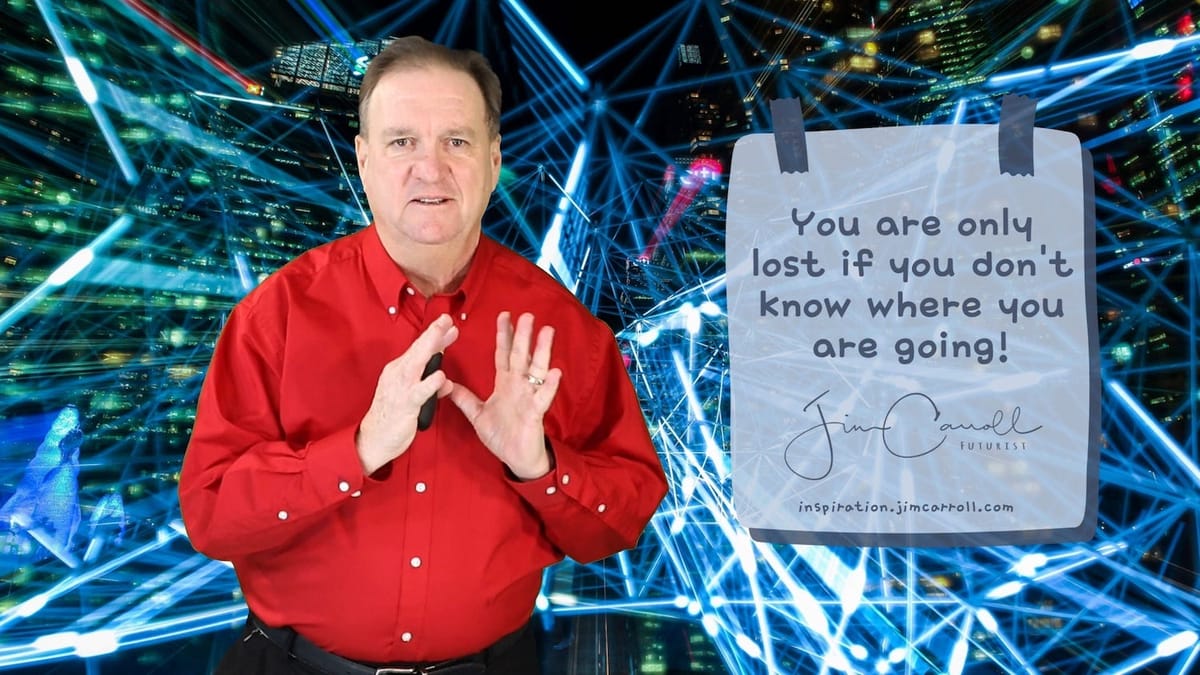Many people and the organizations in which they exist make a litany of excuses for their failure to adapt:
- "I didn't see that coming"
- "no one told me about that"
- "wow, that was surprising"
- "who would have thought!"
- "I'm shocked by what happened!"
- "we didn't have that on our radar!"
- ...and similar dismissals related to their anticipate what's next
The result is that people and organizations often fail because they don't align with obvious future trends. Their loss, directionless, unaware of where they should be going next - but in a world that is sending them all the signals as to their future. In many cases, folks like myself have been telling them exactly what is going to happen to their industry, business model, structure, and future. They chose not to listen.
They are lost, but they don't need to be if they spend more time to align to all the obvious signals as to what comes next and what they should do about it it. They must make the shift to becoming forward-thinking in everything they do - in which they:
- anticipate change, rather than being surprised by the change
- are proactive, not reactive, in its actions, by understanding what's next
- have a willingness to embrace change, not recoil from change, because they know what is going to change
- relishes and encourages fresh thinking that is aligned to what's next
- have a creativity incubator that generates ideas based on what they know will happen tomorrow
- hires staff for their ability to look forward, not back
- has a strategy that is focused more on where they should be going rather than where they've been in the past
- shifts its mindset from 'surviving' to 'thriving' because of their shift to thinking about tomorrow
- is prepared to make bold moves for the future rather than take timid steps that are more of the same as today
- has an effective trends radar that identifies what comes next
- has an active strategy to align those trends to 'what should we do about it!'
What they really decide to do is align to the future, rather than their past - and actively act upon that.

